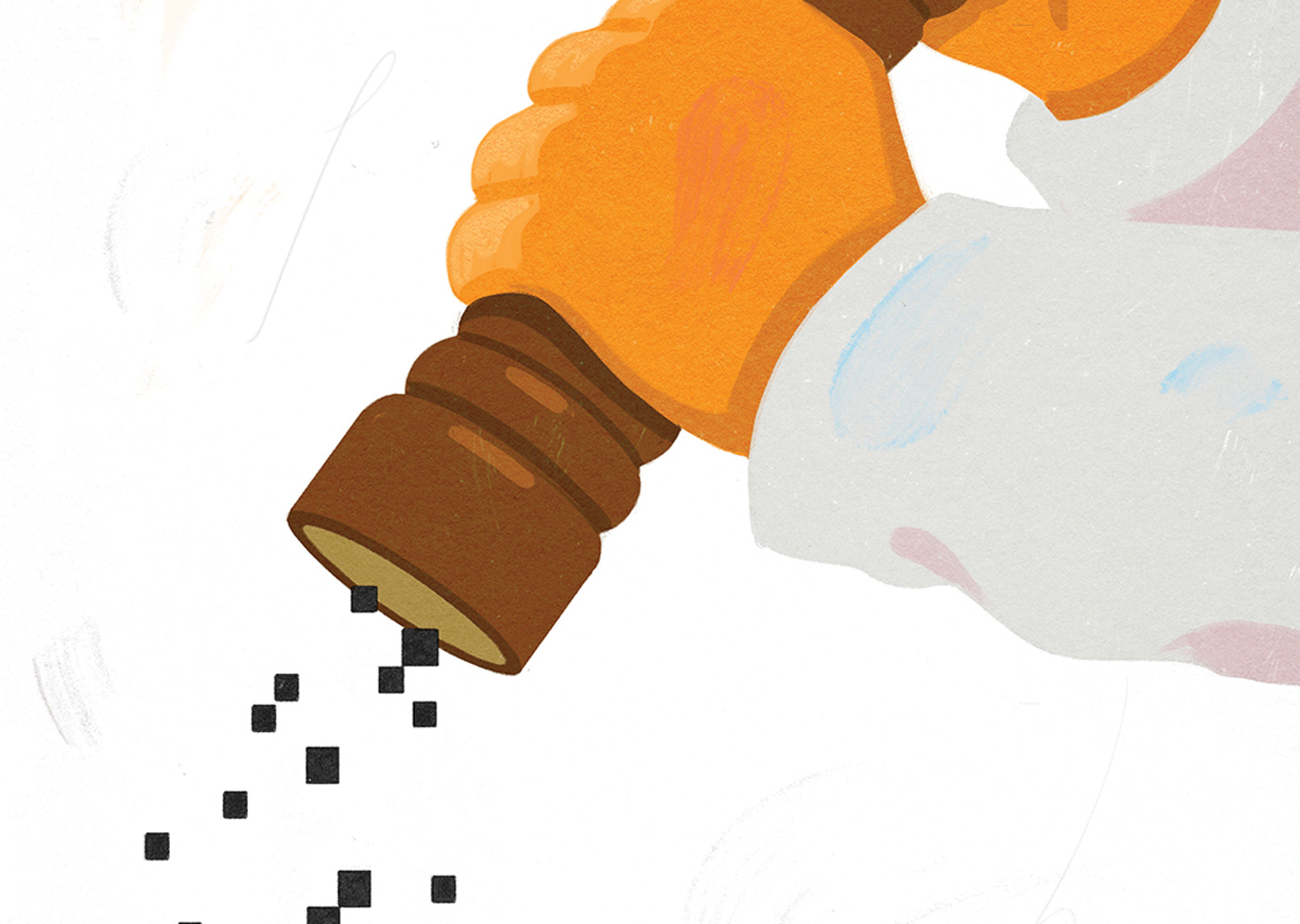At first glance, Niko’s Grill (formerly located on Jasper Avenue) could have been mistaken for any street-meat hangout. The fridges were stocked with plenty of pop and the walls were decked with sports-related quotes. All that was missing was an Oilers poster. Compared to its former lavish and over-the-top website, the real Niko’s was unsuspecting — until you saw the kitchen.
In the kitchen, there was one unlikely addition: A wall of tablets, taking online orders for different restaurants with names like Pepe’s Perogies, Churro Burger, Cinnabon, Philly Fred or Demi’s Poutines, going through different delivery options like Uber, SkipTheDishes, Foodora and DoorDash. This past fall, Niko’s Grill permanently closed — but the other chains remained. All of these varied dishes are prepared in the same kitchen.
In the age of minimalism, the restaurant business is getting a virtual shakeup. As on-demand food delivery services pick up steam across Canada, so do these “ghost kitchens,” allowing restaurants to forgo storefronts and work out of a single shared space.
There is only one phone number to call, and nowhere to leave a Yelp review. Here, menus are optimized so food that would otherwise be wasted in a traditional kitchen can be used to fulfill an order. Here, multi-tasking is king.
Rishi Mittal works as an area developer for Jackpot Brandz, a Toronto-based company operating ghost kitchens all across the Prairies. As Jackpot looks to expand across the country, part of Mittal’s job involves educating people on what to expect.
“The main thing is people can’t comprehend how you can have multiple brands [and] cuisines coming out of one kitchen.” Mittal says. “People have a general idea of the traditional restaurant concept, ‘Like I need Italian, I’m going to go to an Italian restaurant.’ But what we’re trying to tell people is – why do you have to jump around?”
Someone ordering takeout from Churro Burger might not immediately realize it was created in the same space as Pepe’s Perogies. But Mittal expects that to change as Jackpot aims to bring a bevy of national and international brands on board, taking advantage of a distribution framework already set in place.
